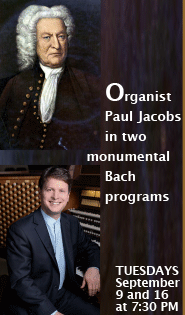Performances
Bozzini Quartet brings new music from Canada to Time:Spans
There is a festival within this year’s annual Time:Spans. One of […]
Noseda strikes sparks with National Youth Orchestra of the United States of America
A year removed from the wonderful World Orchestra Festival of youth […]
Aucoin work fails to put last things first in Run AMOC* premiere
The ongoing Run AMOC* Festival at Lincoln Center brought out one […]
Bell, Denk and friends show Fauré a chamber composer pour toutes les saisons
Characterizing Gabriel Fauré’s attractive yet elusive chamber music in words is […]
Terry Riley’s 90th birthday is marked in Brooklyn with classic and modern works
The temperature was still near 100 degrees outside when the celebration […]
Articles
Opera Lafayette to premiere oldest known opera by black American composer
Sometimes finding a musical treasure is sheer serendipity. A librarian cleaning […]
Top Ten Performances of 2024
1. Schoenberg: Verklärte Nacht. Mahler: Symphony No. 1. Klaus Mäkelä/Royal Amsterdam […]
Announcement
New York Classical Review wants you!

New York Classical Review is looking for concert reviewers for the 2025-26 season.
A deep knowledge of classical repertory across all genres is required as well as excellent writing skills. Classical reviewing and/or journalism experience is preferred but not mandatory.
Please send a CV with clips or links to editor Lawrence A. Johnson at [email protected].
Calendar
September 4
Death of Classical
Ariel Quartet
Beethoven: String Quartet No. […]
News
Philharmonic to cast a wide net of artists, repertoire in 2025-26 season
In New York City, at the foundation of American culture, and […]
Met to debut works by Bates, Saariaho and Frank in 2025-26 season
The Metropolitan Opera’s 2025-26 season commences September 21 with a notable […]

